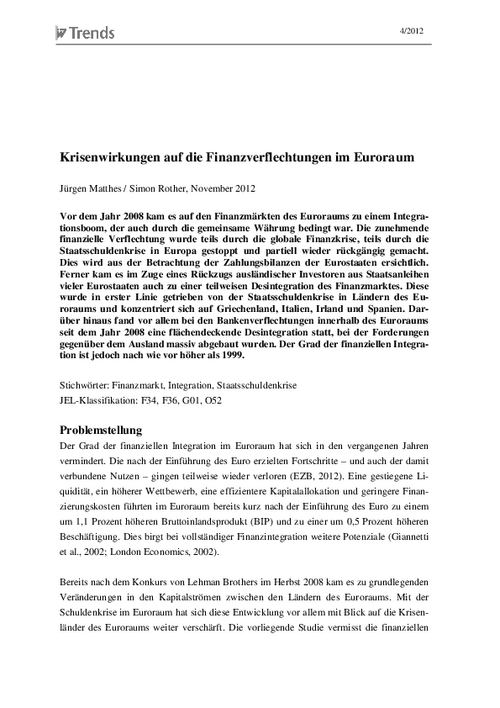Prior to 2008 the financial markets of the Eurozone were becoming ever more closely integrated on the back of the common currency. Due partly to the global financial crisis and partly to the sovereign debt crisis in Europe this increasing integration has now been stopped and partially reversed. An examination of the balance of payments of the Eurozone countries makes this clear. Moreover, a retreat by foreign investors from the government bonds of many states in the Eurozone has also led to a partial financial disintegration in the sovereign debt market. This process has been driven primarily by the sovereign debt crisis in Eurozone countries and is concentrated on Greece, Italy, Ireland and Spain. In addition, since 2008 the Eurozone as a whole has seen a process of disengagement between banks, involving a massive reduction in the amount of foreign debt held. The degree of financial integration remains higher than in 1999, however.
Download | PDF

